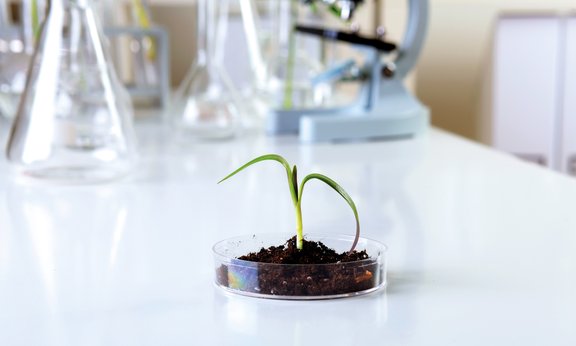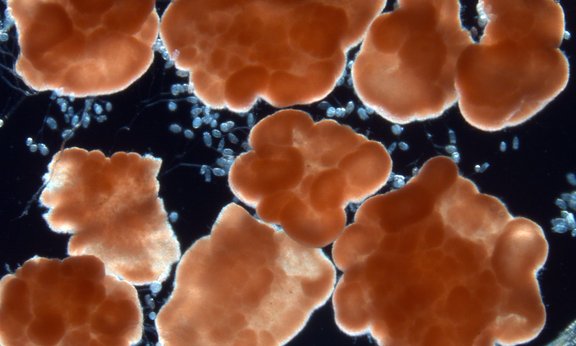Master’s Programme Microbiology
You want to understand and be able to apply complex (micro-)biological relationships?
Fungi, bacteria and archaea are tiny organisms but they are of great importance to human life. Microorganisms have symbiotic relationships, fight pests, produce yoghurt and beer, clean wastewater and produce bioenergy among many other functions. The main topics of the Master’s Degree Programme in Microbiology are metabolic pathways and ecology to teach the students about the complex functions of microorganisms.
Some of the more specialised topics the students may focus on are environmental and food technology, signal transduction, ecological nutrient cycles, life at the border between climate regions and the production of secondary metabolites.
Study Code
UC 066 830
FAQ
Graduates of the Master’s Programme in Microbiology have the necessary knowledge as well as the required skills and competences to find methodologically sound answers to subject-specific questions related to research in microbiology and to apply them in practice. They are able to scientifically evaluate and further develop areas of microbiology and to apply their acquired knowledge in an interdisciplinary way.
The Master’s Programme Microbiology provides an in-depth scientific training based on pertinent bachelor programmes. Aim is a well-founded subject-specific education, also with focus on the application of the knowledge. Besides of theoretical and methodological expert knowledge students also learn how to think and work in a scientific way to be able to understand complex (micro-) biological contexts and to apply this knowledge.
Research and teaching at the Institute of Microbiology focuses on archaea, bacteria and fungi. Besides of the theoretical basics in systematics, physiology, molecular biology and ecology, also application-orientated aspects are conveyed (medicine, plant protection, environmental technology, biotechnology, soil biology). The programme places great emphasis on practical experience in laboratories, in the outdoors and in the scientific practice. The Master’s programme is also a preparation for a pertinent doctoral programme.
Scientific and managerial positions and work as consultants, experts or authorized experts in private businesses and public institutions (e.g. in the fields of industrial biotechnology, environmental biotechnology, food production and control, pharmaceutical industry, medicine, hygiene, agriculture, forestry and water economy, environmental protection and in public administration, museums, libraries and nature reserves.
Work in research and teaching at universities, universities of applied sciences and other national or international research institutions.
Other professions in the overlapping areas to other disciplines (geoecology, geography, agricultural science, archaeology, medicine, employee protection, allergology, veterinary medicine, building protection, patent law, journalism and many other fields) in combination with respective additional qualifications.
Graduates of the Master’s Programme in Microbiology have the subject-specific skills required for commencing a pertinent doctoral programme.
Graduates tracking: Shows which occupational fields students enter after graduation.
Faculty of Biology Examination Office Information for students with disabilities
Curriculum
From the field
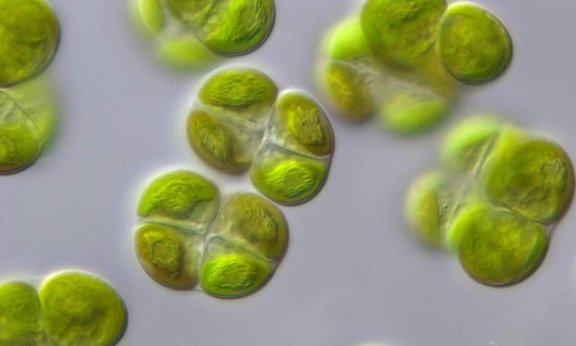
Pflanzen-Ahn entpuppt sich als vielfältig
In Schönbrunn wurde 1942 eine Alge entdeckt, die als „Neue luftlebige Algen aus Wien“ beschrieben wurde. Mittlerweile weiß man, dass diese Algengattung „Chlorokybus“ zu den am weitesten entfernten und ältesten Verwandten der Landpflanzen zählt. Forscher haben nun gezeigt, dass die Gattung nicht nur eine, sondern mindestens fünf verschiedene Arten enthält.
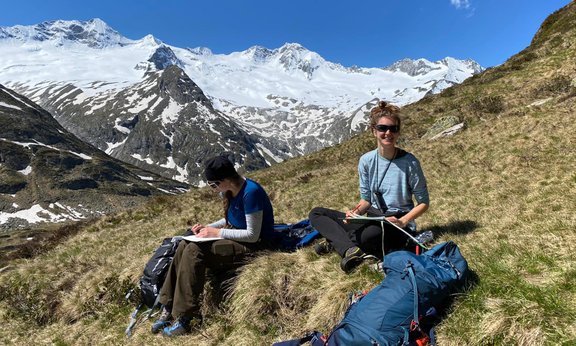
Viel mehr als bloße Theorie
Ein Studium an der Universität Innsbruck ist viel mehr als Theorie. Ob bei Kartierungsarbeiten im Zillertal, Laboruntersuchungen zur ökologischen Abbaubarkeit von Textilien oder einem Einblick in die Arbeit von Lektor*innen: Viele Studierende sind bereits während ihres Studiums in praktische Forschungsprojekte eingebunden.

wissenswert Februar 2021
Diese Ausgabe von wissenswert ist dem Studium gewidmet: Wir informieren über Aufnahmeverfahren und Studienstart, geben Einblick in neue Studien- und Weiterbildungsformate und stellen spannende Praxisprojekte von Studierenden vor. Darüber hinaus erfahren Sie, dass Schnecken geschickte Anpassungskünstler sind und warum Dialekte Information und Emotion beinhalten.
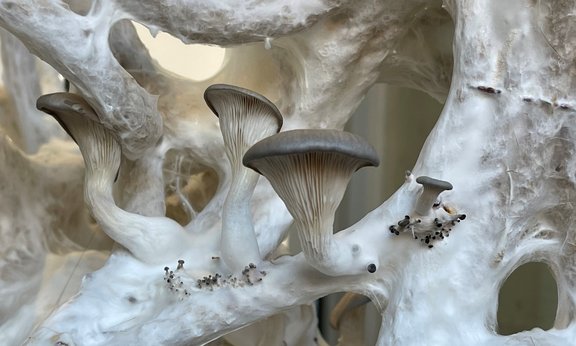
Zukunftsweisendes biologisches Design
Im vergangenen Wintersemester fand erstmals eine interdisziplinäre Architektur-Mikrobiologie Lehrveranstaltung für Studierende der Architektur statt, deren eindrucksvolle Ergebnisse in einer Ausstellung präsentiert wurden.
Related studies

Atmospheric Sciences (Master)
Master of Science

Chemical Engineering (Master)
Diplom-Ingenieur*in

